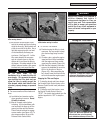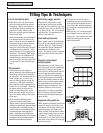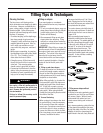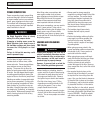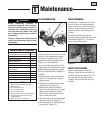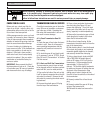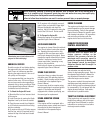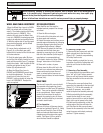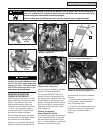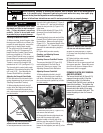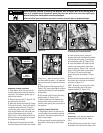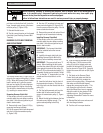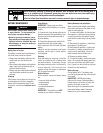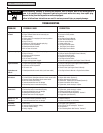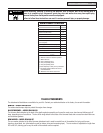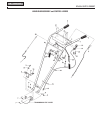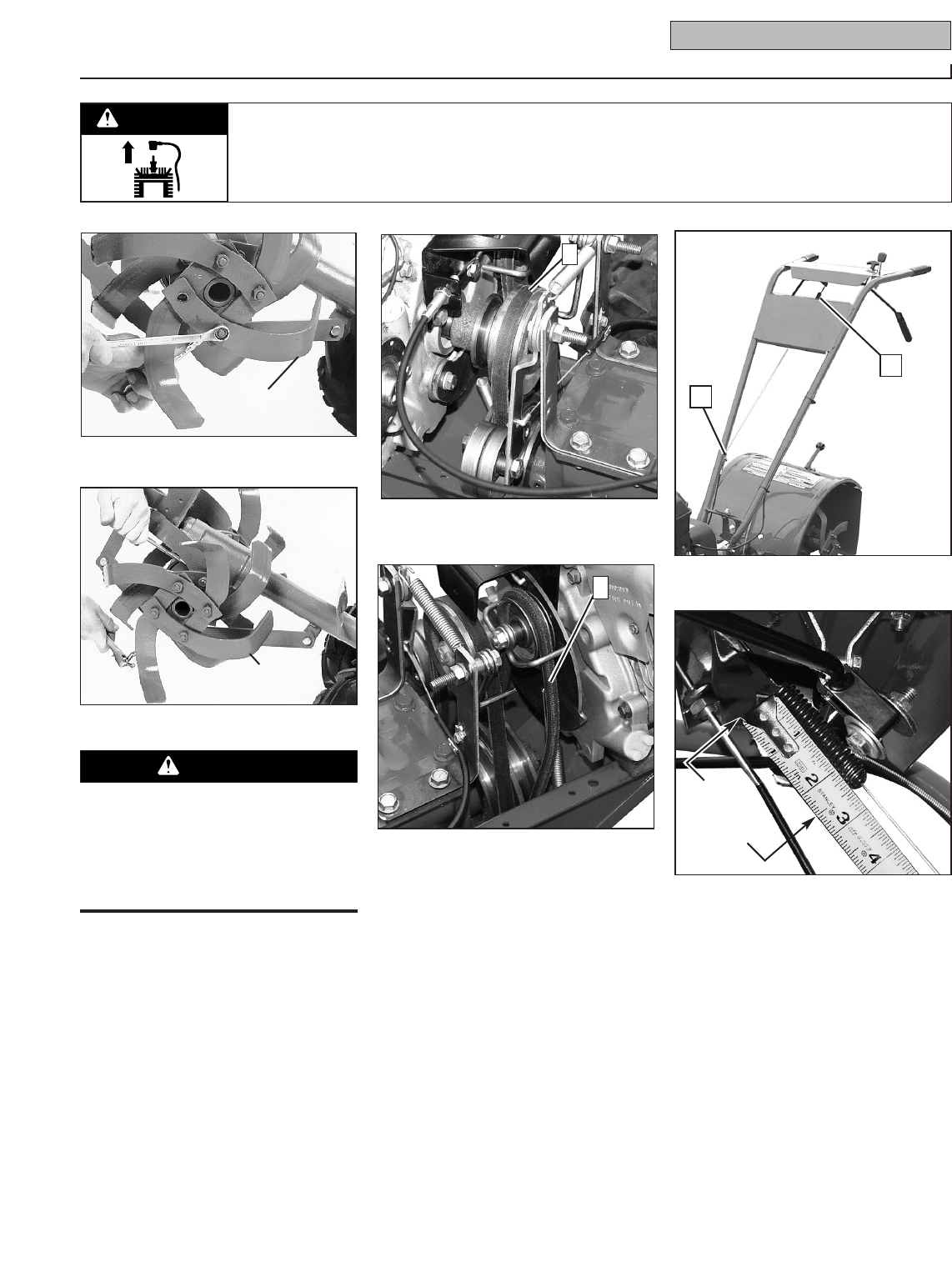
Section 5: Maintenance 21
Before inspecting, cleaning or servicing the machine, shut off engine, wait for all moving parts to
come to a complete stop, disconnect spark plug wire and move wire away from spark plug.
Remove the key from the keyswitch on units so equipped.
Failure to follow these instructions can result in serious personal injury or property damage.
WARNING
CHECKING AND ADJUSTING
TENSION ON CLUTCH BELTS
Maintaining correct belt tension is impor-
tant to good tilling performance and long
belt life. A loose belt will slip on the
engine and transmission pulleys and
cause the tines and wheels to slow down
– or stop – even though the engine is
running at full speed. A loose belt will
also result in premature belt wear.
While checking belt tension, also check
for cracks, cuts or frayed edges. A belt in
poor condition should be replaced.
Tension on a new forward clutch belt (C,
Figure 5-8) should be checked after the
first two (2) hours of operation and after
every ten (10) hours of operation.
The reverse clutch belt (D, Figure 5-9),
because it is used more sparingly, may
not require tension adjustment until a sig-
nificant number of operating hours has
passed. A tension adjustment is required
only if there is little or no reverse move-
ment when the Reverse Clutch Control
knob is pulled out.
Checking and Adjusting
Forward Clutch Belt Tension
It is important to maintain correct tension
on the forward clutch belt. A loose belt
will cause the tines and wheels to slow
down – or stop completely – even though
the engine is running at full speed.
A loose belt will also result in premature
belt wear.
• Check belt tension after the first two
hours of break-in operation and after
every 10 operating hours.
• At the end of each tilling season, check
the belt for cracks, cuts or frayed edges.
A belt in poor condition should be
replaced.
Figure 5-10: Location of forward clutch cable
spring (E) and forward cable adjuster (F).
Figure 5-6: Removing single tine.
Figure 5-7: Removing a tine assembly.
Cutting Edge
of Tine
Cutting Edge
of Tine
Follow the belt adjustment instructions
carefully. An incorrect adjustment could
result in the clutch control mechanism
engaging too soon. This could cause
loss of tiller control and result in per-
sonal injury or property damage.
WARNING
Figure 5-11: Correct spring length when
Forward Clutch Levers are engaged is 2-1/2".
2-1/2"
extended
spring length
Figure 5-8: Forward clutch belt. (C, Left-
side view, no belt cover.)
Figure 5-9: Reverse clutch belt (D).
(Right-side view, no belt cover.)
C
D
E
F



